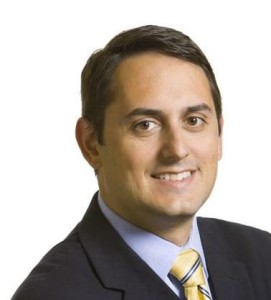 The Right Note is a weekly opinion column. The views and opinions expressed in the column are those of the author and do not necessarily reflect the views of ARLnow.com.
The Right Note is a weekly opinion column. The views and opinions expressed in the column are those of the author and do not necessarily reflect the views of ARLnow.com.
On Monday, The Washington Post ran the following headline: “Metro hails SafeTrack as a success, but it has yet to translate into better services for riders.”
The article was not any better for the system than the headline. After one year and nearly $160 million spent addressing decades of deferred maintenance on its basic infrastructure, the system still has miles to go on repairs.
And despite what has been hailed as a good first step for safety, there is little evidence that Metro has been able to overcome the long held view that it is unreliable.
For years, many Metro riders were willing to look past the issues with reliability, including the inability to keep escalators and elevators in operational order, because fares remained relatively low. But as fares steadily increased and the severity of incidents increased, riders walked away from the system. Now you can jump on your smart phone, order an Uber or Lyft ride with little cost difference.
The Post also ran an editorial on Monday with its own solution for the problem: a 1 percent regional sales tax to pump $650 million into the system each year.
Such a measure would almost certainly pass if put before the voters in Arlington, though it would be up to the General Assembly in Richmond as well as officials in Maryland and D.C. And some additional funding is not necessarily an unreasonable ask if we want to put the system back on its feet.
But it is also not unreasonable to exercise caution and ask for real accountability in return. While General Manager Paul Wiedefeld is largely credited with taking Metro’s safety problems seriously, and has fired staff where appropriate and allowable, little has really changed to the underlying governance of the system.
However, Monday’s Post editorial continued by carping that, “Locally, some myopic GOP elected officials grumble” about Metro asking for more money when it’s not spending money wisely now. Setting aside the near unanimity of elected officials inside the beltway who are Democrats, what is wrong with expecting Metro to be set up for success before handing them $6 billion to spend over the next decade?
And in February the Post seemingly agreed with this political “myopathy,” editorializing in favor of reforms by saying, “governance reforms are critical, including enhanced flexibility for management to control costs and rein in unions, as well as a streamlined board of directors consisting of transit, finance and management experts rather than local politicians.”
And they continued, “It’s fair to demand management improvements, governance reforms and a workable long-term recovery plan at Metro.”
The Post was correct in February. The region should demand a transformational reform plan from Metro before providing any new revenue source. Metro’s failure to do so voluntarily by now means any new money must come with strings attached.


